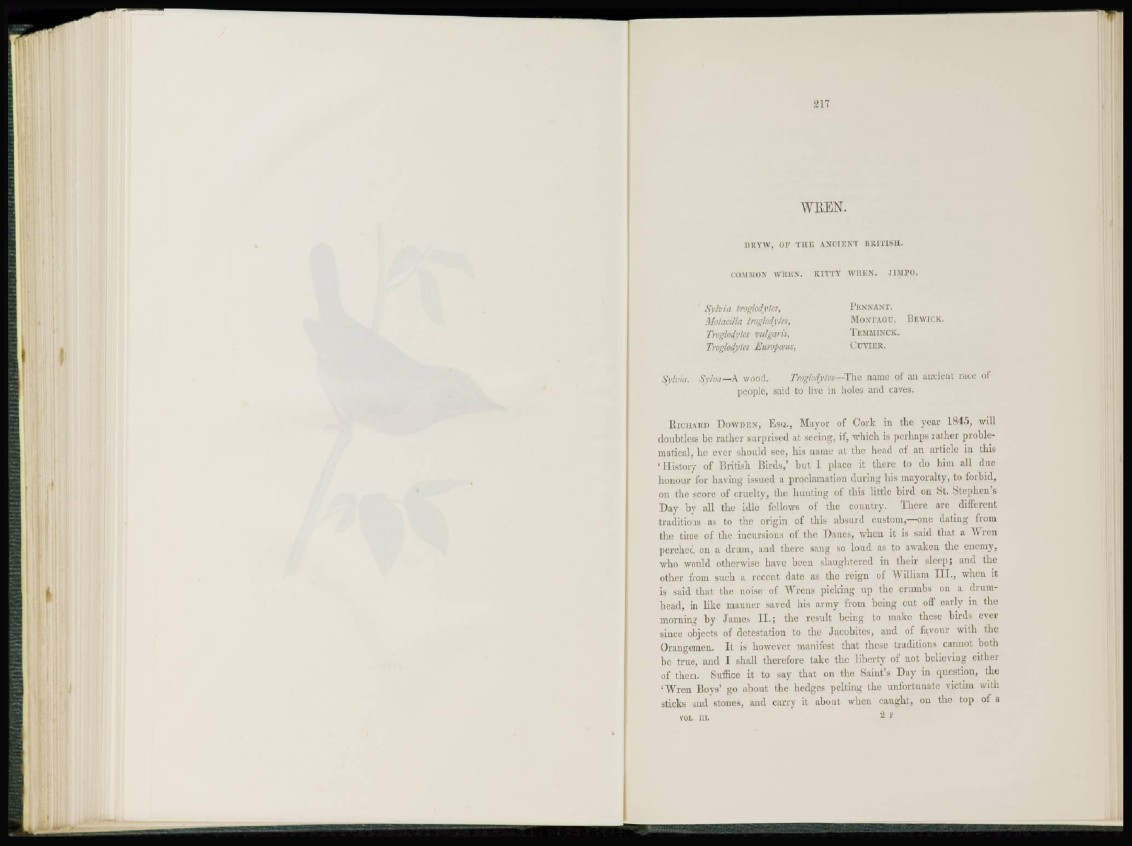
WEEN.
DRYW, OF THE ANCIENT BRITISH.
COMMON WREN. KITTY WREN. J1MP0.
Sylvia troglodytes,
Motacilla troglodytes,
Troglodytes vulgaris,
Troglodytes Europaus,
PENNANT.
Mom CAGU. BEWICK.
TEMMINCK.
CUVTER.
Sylvia. Sylva—A wood. Troglodytes—-The name of an ancient race of
people, said to live in holes and caves.
RICHARD DOWDEN, ESQ., Mayor of Cork in the year 1 8 4 5 , wiB
doubtless be rather surprised at seeing1, if, which is perhaps rather problematical,
he ever should see, his name at the head of an article in this
' H i s t o r y of British Birds,' but I place it there to do him all due
honour for having issued a proclamation during his mayoralty, to forbid,
on the score of cruelty, the hunting of this little bird on St. Stephen's
Day by all the idle fellows of the country. There are different
traditions as to the origin of this absurd custom,—one dating from
the time of the incursions of the Danes, when it is said that a Wren
perched on a drum, and there sang so loud as to awaken the enemy,
who would otherwise have been slaughtered in their sleep; and the
other from such a recent date as the reign of William I I I . , when it
is said that the noise of Wrens picking up the crumbs on a drumhead,
in like manner saved his army from being cut off early in the
morning by James I I . ; the result being to make these birds ever
since objects of detestation to the Jacobites, and of favour with the
Orangemen. It is however manifest that these traditions cannot both
be true, and I shall therefore take the liberty of not believing either
of them. Suffice it to say that on the Saint's Day in question, the
' W r e n Boys' go about the hedges pelting the unfortunate victim with
sticks and stones, and carry it about when caught, on the top of a
VOL. III. 'J, 1?